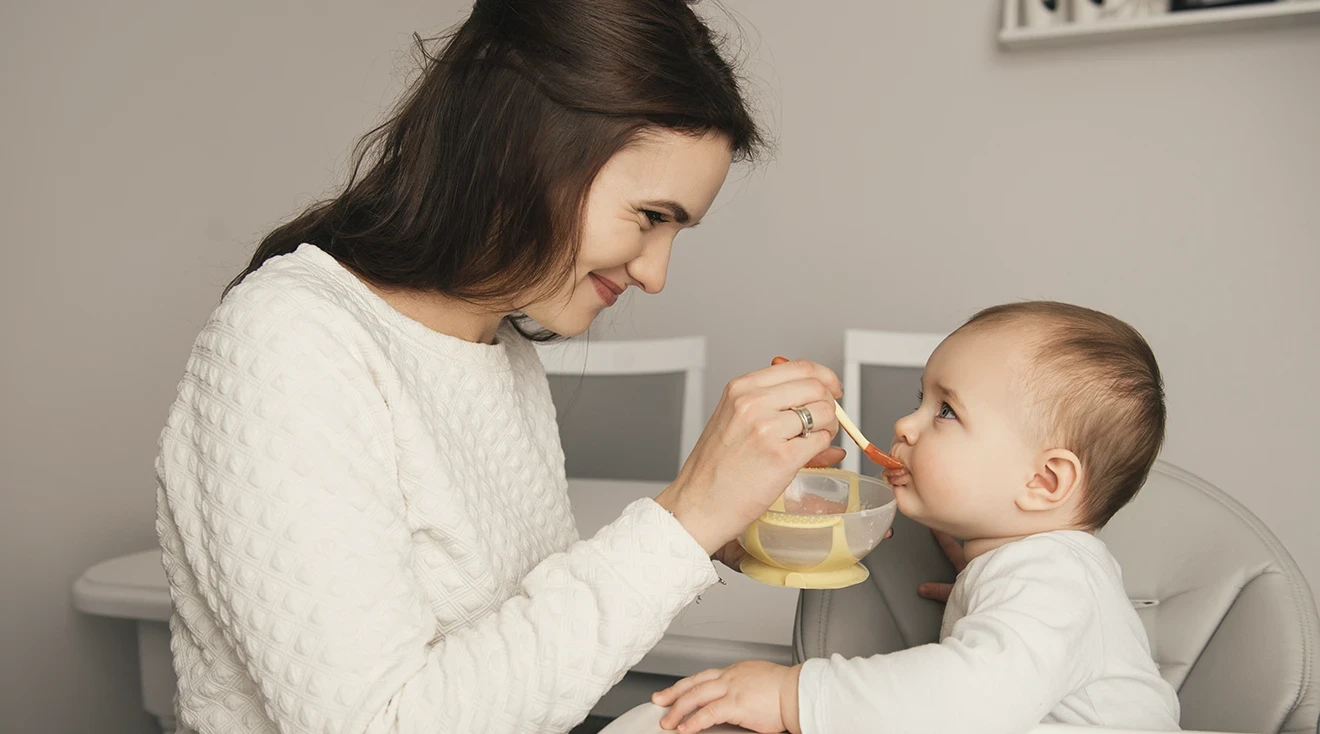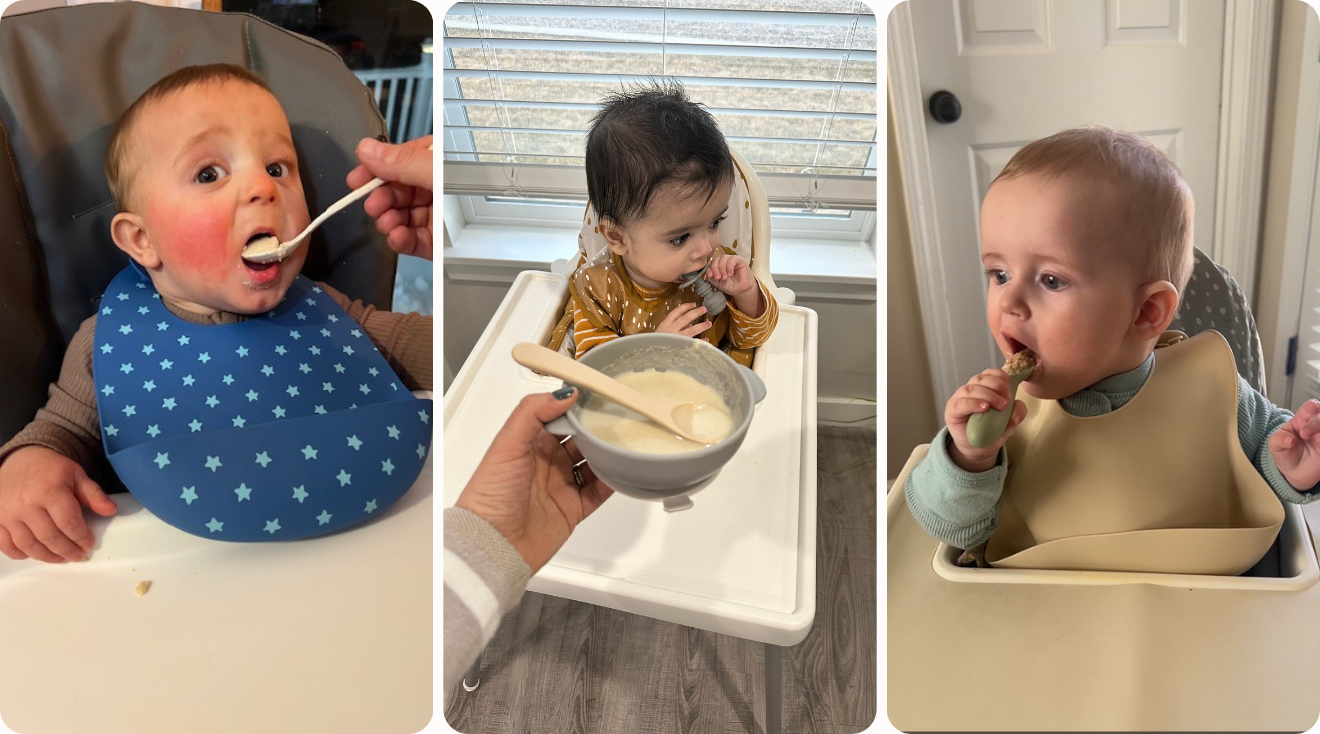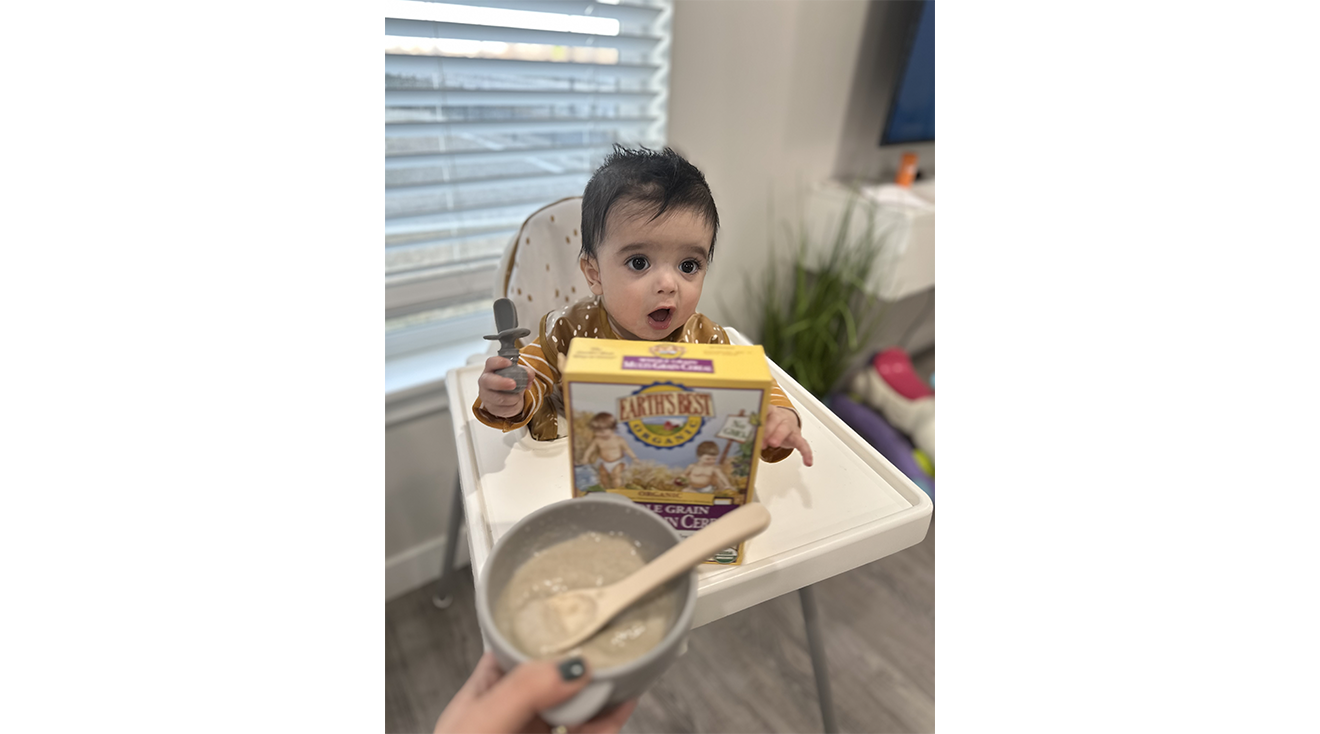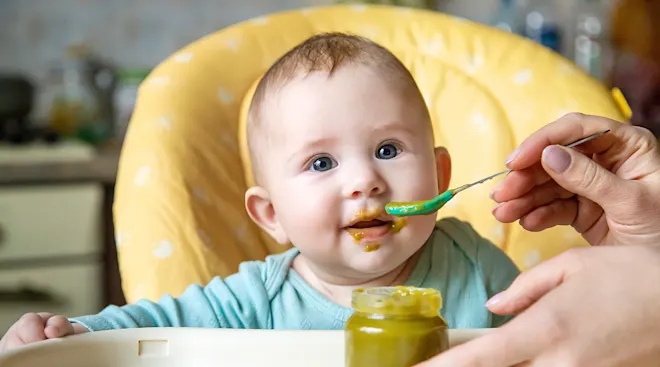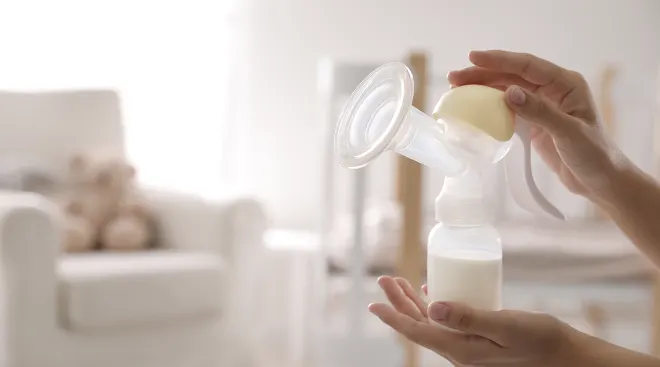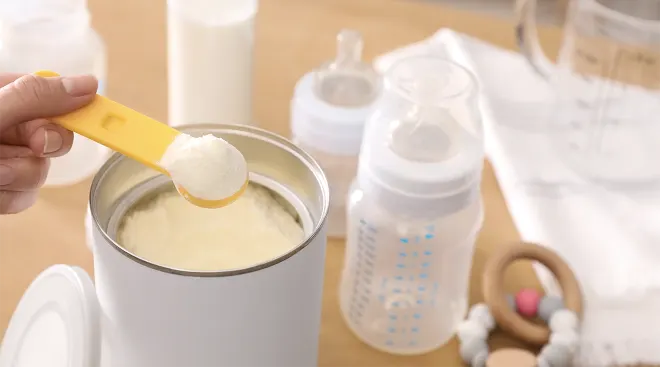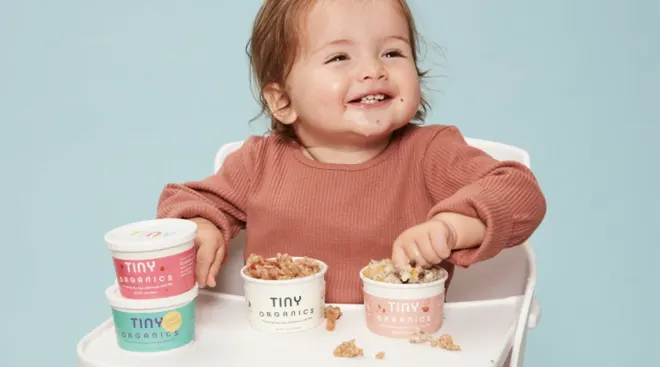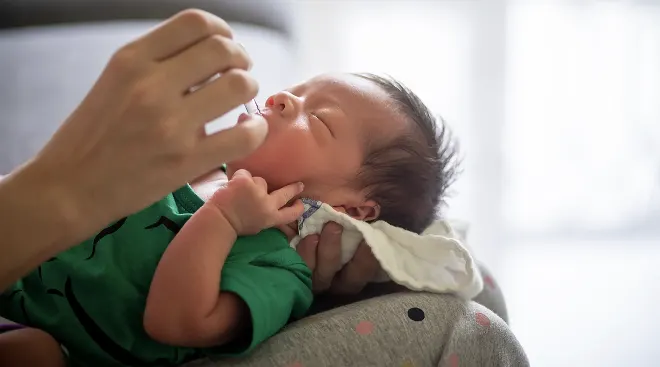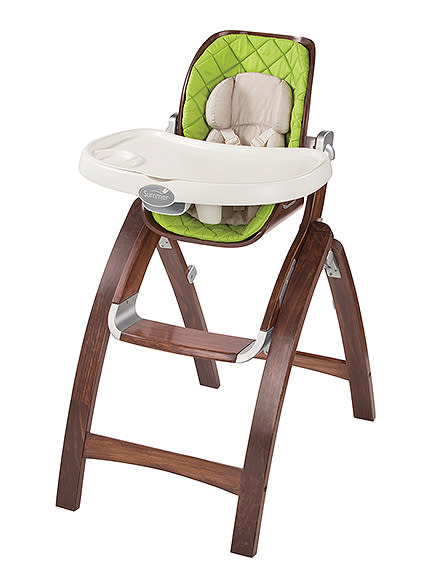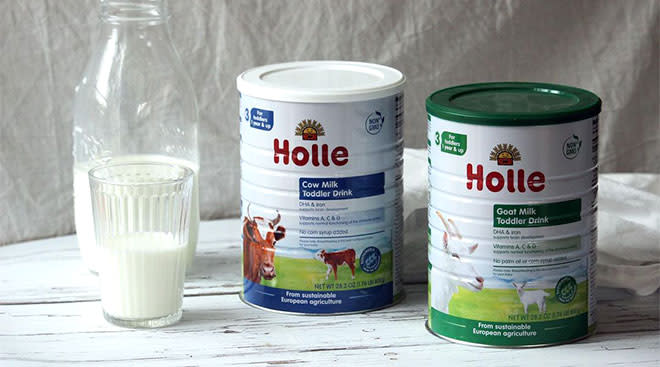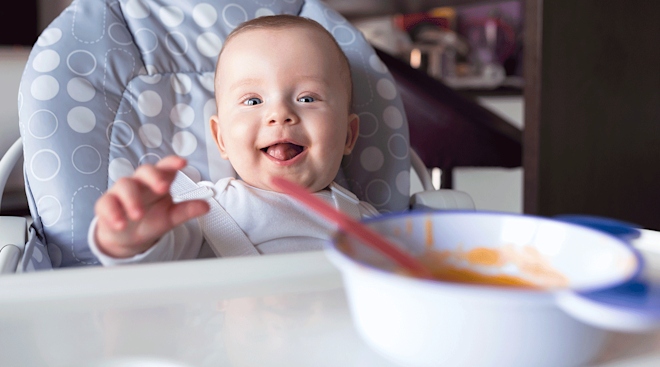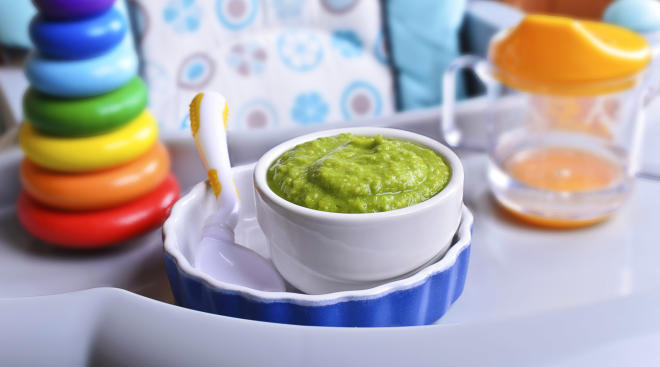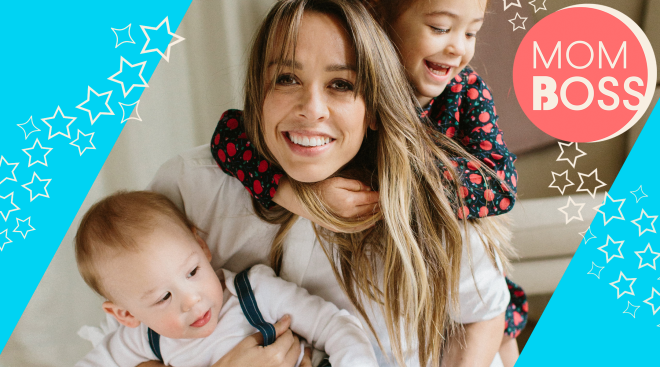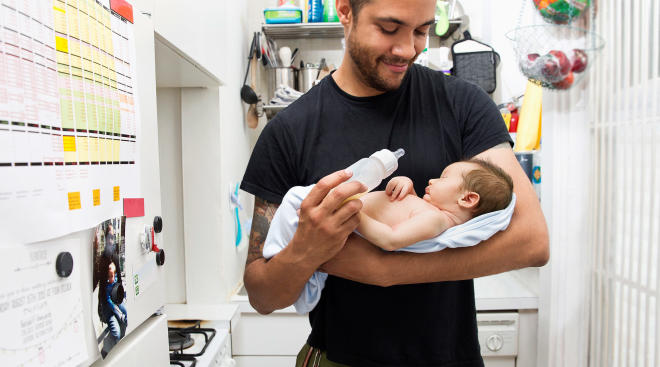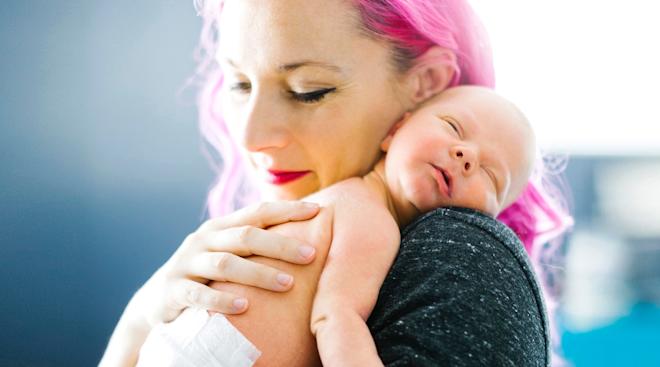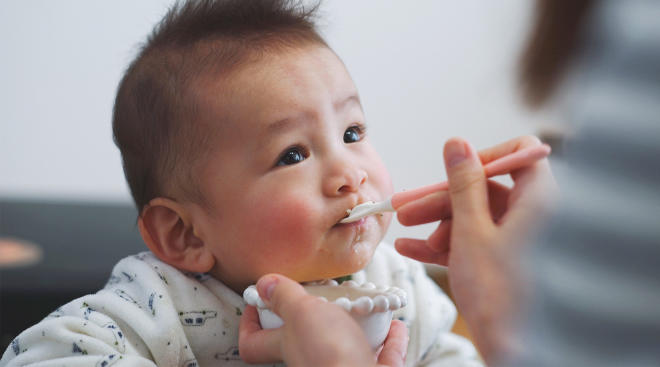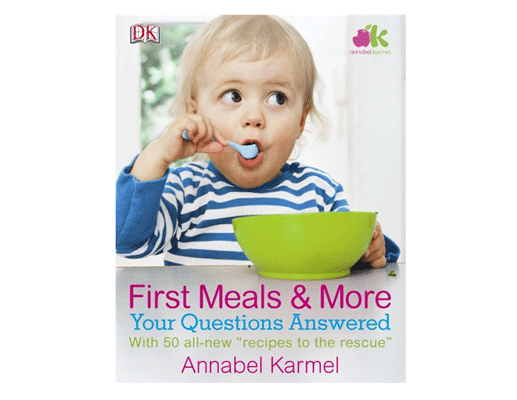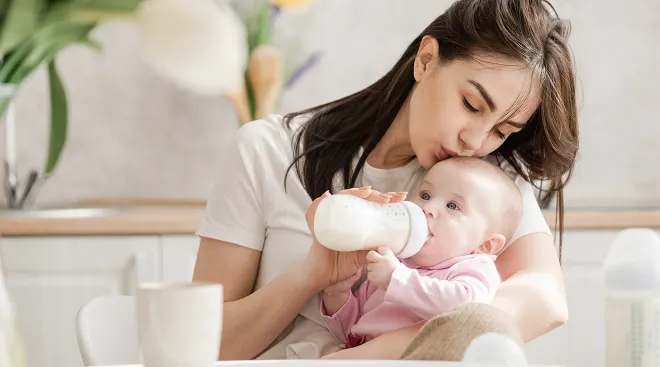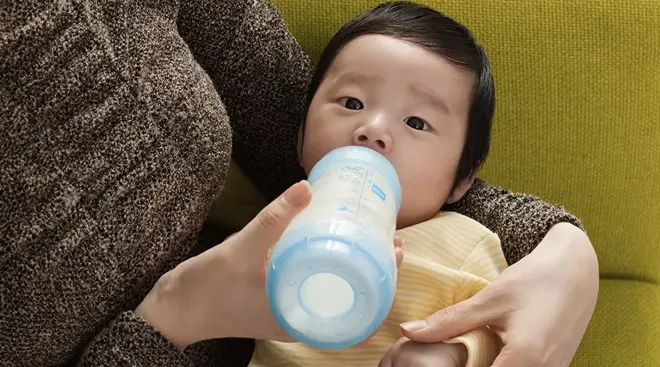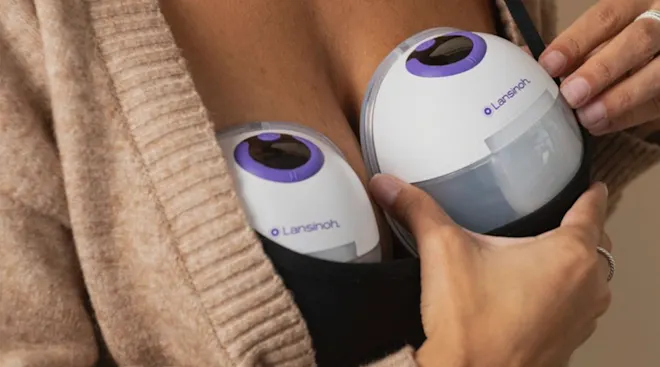5 Best Baby Cereals for First Bites, Tested by 7- and 8-Month-Olds
In a nutshell:
Based on first-hand product testing and advice from four experts, we chose the Gerber Organic Single Grain Oatmeal Baby Cereal as the overall best baby cereal. It stood out because of its well-rounded ingredient list, ease of preparation and serving and reasonable price point.
After months of an all-liquid diet, baby is ready for a taste of solid food. To help make this exciting milestone go smoothly, you may decide to reach for baby cereal first—lots of parents do. With its plain flavor and adaptable consistency, baby cereal is the ultimate chameleon. It not only helps your little one adjust to the texture of solids, but it can also be blended with new foods to help make them more palatable. “Baby cereals are great,” says Robert Hamilton, MD, a board-certified pediatrician at Providence Saint John’s Health Center in Santa Monica, California. “They provide a [solid] food source for young babies. You go from there.”
We enlisted the help of three families to test these iron-fortified infant cereals with their 7- and 8-month-olds. Based on their first-hand experience, we selected the best of the best. Discover our top choices below, along with important safety information to know before baby takes that first spoonful.
To simplify your search for the best baby cereal, we conducted exhaustive research and identified the 11 best options on the market. Based on criteria advised by experts, we then identified 6 baby cereals to test. From there:
- We enlisted the help of three families to test two baby cereals each with their 7- to 8-month-old infants. We asked parents to carefully follow the storage and preparation instructions for each cereal and to feed it to their child at least three times. We even asked parents to taste the cereal for themselves to get a better idea of the flavor and texture. After testing, families then evaluated their two cereals for their packaging, ease of preparation and serving, nutritional value, taste, texture and consistency and value for money.
- We researched what was being said about baby cereals in The Bump forums to learn what parents liked (and disliked) about certain brands and products.
- We interviewed a pediatric gastroenterologist, a pediatric dietician and two pediatricians. They told us when and how parents can introduce cereal into their child’s diet, what nutrients to consider when checking ingredient lists and safety considerations to remember. Based on expert advice, we only chose iron-fortified baby cereals for testing and article inclusion, and excluded rice cereals from consideration.
- We consulted safety guidelines and nutritional recommendations from the US Department of Agriculture and US Department of Health and Human Services, the US Food and Drug Administration (FDA) and the American Academy of Pediatrics (AAP) to learn what to look for and avoid when choosing baby cereals.
- To understand how these baby cereals have worked for families nationwide, we conducted exhaustive market research, scouring forums and message boards and reading user reviews.
- We looked at the most popular baby cereals on the market and considered several factors—like daily nutritional values for iron and protein, ingredient lists fortified with vitamins and minerals, grain types and age rating—when choosing which options to feature in our article.
Editorial integrity is at the heart of everything we publish. Read about how The Bump develops and reviews all articles, including product reviews.
Overall best baby cereal
- Easy to prepare and mix, according to parents
- High iron percentage
- Budget-friendly price point
- USDA-certified organic
- Small amount of added sugar
Whether you’re introducing cereal into baby’s diet for the first time or looking for a dependable, nutritionally balanced option for your older infant, the Gerber Organic Single Grain Oatmeal Baby Cereal is an excellent choice. It has 13 ingredients and is fortified with vitamins and minerals, such as zinc, vitamin B6 and vitamin C, all of which Turnbull says contribute to baby’s brain development and immune function. For further support, this cereal also contains 60 percent of baby’s recommended daily value for iron and folic acid. Our tester Audrey, mom of an 8-month-old, was a fan of this range of nutrients. “There were many added vitamins and nutrients that I think are important for a baby just starting to eat solids. […] I recognized all of the ingredients and none looked unfamiliar,” she told us. Plus, it’s USDA-certified organic, which Audrey praised.
Parents of infants with sensitive stomachs will appreciate that this cereal is single-grain. In contrast to multi-grain cereals, single-grain cereals are “easier to digest and less likely to cause allergic reactions,” explains Turnbull. Though Audrey’s 8-month-old doesn’t experience gastrointestinal problems, she found that eating this cereal positively impacted her son’s digestion. “His consistency didn't change when we started testing the cereal, but he became more regular like down to the hour when he would poop,” she shared.
Better yet, Audrey found this baby cereal straightforward to prepare and serve. The instructions were easy to follow, and Audrey said it was easy to achieve her desired consistency in less than a minute. “I also liked how they suggested how much oatmeal and water [or] formula to add if your baby is just starting to eat cereal. It's a good way to gauge the proportion of oatmeal and water needed,” she explained. All in all, this organic baby cereal was easy and enjoyable for Audrey’s 8-month-old to eat. “He was able to move the food around in his mouth and swallow it without any issues,” she added, “he always ate everything I served.”
While most baby cereals tend to be reasonably priced, it’s worth noting that this option is the least expensive on our list. After testing, Audrey told us she’ll continue buying this infant cereal for her family. “I would recommend this baby cereal to other parents because of the brand, price and nutritional benefits,” she said.
Age rating: 4 to 6 months | Primary grains: Oat | Vitamins: C, E and Bs | Minerals: Iron, calcium and zinc
Our product tester says:
“It has a lot of nutritional benefits, and I am happy with the quantity and quality of the oatmeal cereal which makes it worth the price. […] I think this cereal is a good choice for the early stages of solid feeding because you can control the consistency and texture by fluctuating the ratio of oatmeal to water.”
Our community says:
My youngest daughter started on this, and I was impressed at the pour spout and secure snap on the lid to keep the cereal fresh. It also mixed well and didn’t create lumps. – Korin M., Mom of four
Best multi-grain baby cereal
- Only contains six ingredients
- High iron percentage
- USDA-certified organic
- Only contains one vitamin
- No folic acid
While single-grain baby cereal can be a great starting point for new eaters, multi-grain cereals can help little ones expand their developing palettes. “A multigrain cereal can provide a wider variety of textures and nutrients, including fiber, protein and vitamins and minerals,” explains Turnbull. The Earth’s Best Organic Multi-Grain Infant Cereal does just that. It contains a mix of oat, barley and spelt, offering a more diverse range of grains than any other option in our roundup. This organic baby cereal also has just six ingredients, which our tester Kimberly appreciated. She said she liked how they were all non-GMO, USDA-certified organic and clearly listed on the box. “I feel like fewer ingredients show how organic and natural it is; I feel comfortable giving my baby knowing the ingredients,” she shared.
Compared to other organic infant cereals Kimberly has fed her 7-month-old, she found Earth’s Best Organic Multi-Grain Infant Cereal thicker and grainier, which her child enjoyed. “I think he loved the texture because it was easier to feel on his mouth. It's easy to swallow and easy to grab with any spoon,” Kimberly told us. Moreover, preparation took less than five minutes, and she found it easy to achieve the right consistency with warm water.
Although this cereal offers a trio of grains, the minimal ingredient list doesn’t feature as many nutrients as other options on our list. Like the others we tested, The Earth’s Best Organic Multi-Grain Infant Cereal is fortified with iron, but it only contains one vitamin, which may be a drawback for some parents. That being said, Kimberly thinks that this cereal acts as an ideal base to introduce her little one to new foods. “I think it's great because I can mix it with other veggies and fruits, allowing my baby to experience different flavors while still getting the most nutrients and a full belly,” she shared. With that in mind, this could be a solution for parents hoping to create nutrient-dense meals for their infants, thanks to the multi-grain blend.
Age rating: 4+ months | Primary grains: Oat, barley, spelt | Vitamins: E | Minerals: Iron
Our product tester says:
“I love how the ingredients are all clean and clearly listed on the box. [Also,] I love that Earth's Best has 3 grains, helping my baby get the best of variety and helping his digestion.”
Our community says:
We get the Earth's Best brand. [My son has] been eating it for dinner since 6 months old, and now has it for breakfast too. This was his first solid, so we started out by mixing it with breastmilk, thin consistency until he got the hang of it. - jen83mm, The Bump forum member
Most fortified baby cereal
- Fortified with the most vitamins and minerals on our list
- Easy to customize the consistency, according to our tester
- Labeled as FODMAP-friendly
- USDA-certified organic
- Ferrous sulfate (iron) may be hard for some to digest, according to experts
According to pediatric dietician Turnbull, “fortified infant cereals provide key nutrients essential for brain development, blood health and overall growth, helping fill gaps that breast milk, formula or early solid foods may not always cover.” The Else Baby Super Cereal 6+ Months is fortified with more vitamins and minerals than any other option on our list, so you can ensure a well-rounded nutritional base for any of baby’s meals. In contrast to the other cereals we tested, this one includes vitamin K, lecithin, potassium and choline, which work together to offer many benefits. “Vitamin K aids blood clotting and bone health, lecithin (choline and phospholipids) supports nerve function, potassium maintains fluid balance and heart health and choline is vital for memory and cognition,” Turnbull explains.
The Else Baby Super Cereal is made mostly from buckwheat, whereas most other baby cereals which use oat as the primary grain. Our tester, Michelle, appreciated this in addition to the fortified ingredient list. “I like that the packaging indicated that more than 80 percent of the ingredients are almond, buckwheat and tapioca, and the rest is a thoughtful combination of nutritionally balanced protein, as well as vitamins and minerals,” she told us. Plus, the mom of a 7-month-old liked that the nutritional label was easy to understand. “While my son gets most of his nutrients from his formula, I like knowing that the cereal we give him also has added nutrition,” Michelle said.
One potential downside is that this cereal is made with ferrous sulfate as a form of iron. As a result, it may be harder for some infants to digest, especially if your child has a sensitive stomach, says Turnbull. However, Michelle’s 7-month-old didn’t have problems with it. “I think my son digested this cereal very well and did not negatively impact his poop,” she shared.
Preparing this baby cereal with warm water took Michelle less than 30 seconds, and she liked that the texture was smooth whether she made the consistency thicker or thinner. “My son's initial reaction was very positive,” she shared, “he eagerly grabbed the spoon when I offered it!” All in all, when choosing a baby cereal like this one, parents can rest assured that their infant is getting all the nutrients they need. “The convenience and safety of fortified cereals make them a reliable and beneficial option during this critical growth stage,” adds Turnbull.
Age rating: 6+ months | Primary grains: Buckwheat | Vitamins: A, C, D, E, K and Bs | Minerals: Iron, lecithin, calcium, zinc, potassium and choline
Our product tester says:
“I would absolutely recommend this cereal to other parents. I think the cereal is incredibly nutritious and allows parents to feed their babies almonds and buckwheat in an easy way.”
Best high-protein baby cereal
- Highest protein percentage on our list
- Contains hydrolyzed wheat for easier digestion
- Fortified with the second most vitamins and minerals on our list
- Highest sugar content on our list
If you’re looking for a straightforward way to incorporate more protein into your child’s diet, you can’t go wrong with Kendamil Baby Cereal Creamy Oatmeal. From birth up to 6 months, Turnbull says that babies need roughly 9 grams of protein, which they primarily receive through breast milk and formula. Then, between 7 and 12 months, “infants require approximately 11 grams per day of protein,” Turnbull states. Each Kendamil serving delivers 28 percent of your child’s recommended daily value for protein, and it’s the only cereal we tested that contains whole milk powder, skim milk powder and whey powders, which our tester Kimberly was a fan of. “Having protein in a cereal is super important for me,” the mom of a 7-month-old told us. “I feel it important to feed them protein to be well fed and full.”
In addition to the protein-filled milk and whey powders, this cereal is fortified with a range of nutrients that parents and experts appreciate. In fact, it includes the second most vitamins and minerals on our list, including vitamin D, several B vitamins and potassium. “I love that it has whole grains like oats, vitamins and minerals, giving my baby the necessary nutrients to be healthy during this period of growth,” Kimberly shared. This infant cereal is also the only option in our roundup that contains hydrolyzed wheat. According to Turnbull, these are “broken-down proteins to aid digestion for infants with sensitivities,” so this cereal could also be a gentle solution for little ones with digestive issues.
While this baby cereal offers a great source of protein, Turnbull reminds parents not to get too caught up in tracking their child’s nutritional intake, unless otherwise advised by their pediatrician. “Exposure to a variety of different developmentally appropriate foods and textures is more important than micromanaging grams of specific nutrients,” Turnbull explains.
Age rating: 6+ months | Primary grains: Oat | Vitamins: A, C, D, E and Bs | Minerals: Iron, calcium, zinc and potassium
Our product tester says:
“I truly appreciate the value of great ingredients for my baby. I love how the ingredients are all clean and were stated well on the box.”
Best baby cereal for allergen introduction
- Contains top nine allergens
- Clean Label Project Purity Award winner
- USDA-certified organic
- No folic acid
- Contains a small amount of added sugar
- Lowest iron percentage on our list
As per the 2020-2025 USDA Dietary Guidelines, parents should consider introducing babies to allergenic foods as early as 4 to 6 months to reduce the risk of developing food allergies. However, “it can be difficult for parents to consistently and safely introduce all of the nine common food allergens,” Turnbull explains. With that in mind, the pediatric dietician says an infant cereal designed for allergen introduction, like this option, can be extremely convenient.
Ready, Set, Food! Organic Baby Oatmeal Cereal contains the top nine allergens: peanut, egg, milk, cashew, almond, walnut, sesame, soy and wheat. Our tester Michelle loved how simple it was to introduce her son to these ingredients. “I really like that this cereal includes nine top allergens in powder form! I usually wouldn't know how to serve cashews, almonds, walnuts, sesame and soy to my baby, so this is a very easy way to do it,” she explains. Better yet, her 7-month-old loved the taste. “My son's initial reaction was very positive, and he eagerly reached out his spoon for more,” she shared. If that’s not all, it took less than 30 seconds to prepare with warm water; Michelle loved the convenience this cereal offered.
While this specialized baby cereal is helpful to new parents, it’s also the most expensive option on our list. For families who don’t have access to cereals like this, Turnbull suggests introducing common allergens via a more inclusive, food-first approach. Exposing baby to allergens one at a time can also help identify if a reaction occurs, Turnbull explains. That said, Michelle was thoroughly impressed by this infant cereal and would recommend it to other families. “I would repurchase this cereal, mostly due to the ease of offering allergens to my baby,” she explains.
Age rating: 6+ months | Primary grains: Oat | Vitamins: C and E | Minerals: Iron
Our product tester says:
“I think this cereal is worth the price, especially because it includes 9 different allergens that can be difficult to serve to babies. The organic ingredients and nutritional value match the price. It's a great cereal for the early stages of feeding!”
Baby Cereal Comparison Chart
| Overall best baby cereal | Best multi-grain baby cereal | Most fortified baby cereal | Best high-protein baby cereal | Best baby cereal for allergen introduction | ||
|---|---|---|---|---|---|---|
Overall Best 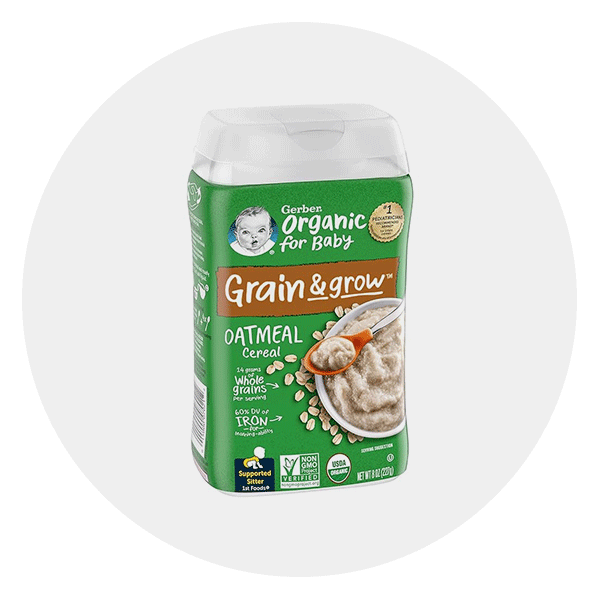 Gerber Organic Single Grain Oatmeal Baby Cereal |  Earth’s Best Organic Multi-Grain Infant Cereal |  Else Baby Super Cereal 6+ Months |  Kendamil Baby Cereal Creamy Oatmeal | 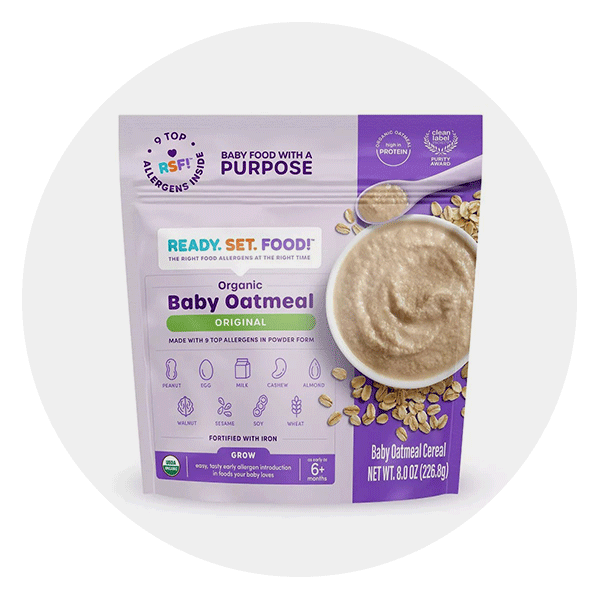 Ready, Set, Food! Organic Baby Oatmeal Cereal | ||
| Price | $ | $ | $$ | $ | $$$ | |
| Primary grains | Oat | Oat, barley, spelt | Buckwheat | Oat | Oat | |
| Iron DV | 60% | 60% | 15% | 31% | 10% | |
| Fortified with vitamins | C, E and Bs | E | A, C, D, E, K and Bs | A, C, D, E and Bs | C and E | |
| Fortified with nutrients | Iron, calcium and zinc | Iron | Iron, lecithin, calcium, zinc, potassium and choline | Iron, calcium, zinc and potassium | Iron | |
| Contains folic acid | ||||||
| Contains soy | ||||||
| Contains nuts | ||||||
| Added sugar | ||||||
| Buy NowRead Full Review | Buy NowRead Full Review | Buy NowRead Full Review | Buy NowRead Full Review | Buy NowRead Full Review |
Baby cereal is typically made of grains that are ground so fine that they turn into a smooth puree when mixed with breast milk, formula or water. This silky consistency is easy for babies to eat and digest. The whole purpose of baby cereal is to prepare baby for bigger and better things, explains Praveen Goday, MBBS, a pediatric gastroenterologist and director of nutrition at Nationwide Children’s Hospital in Columbus, Ohio.
What is fortified baby cereal?
Fortified baby cereals have ingredient lists that include added vitamins and minerals necessary to support baby’s growth and development. According to Alex Turnbull, RD, a registered dietitian and mom of two, fortified cereals offer these advantages over non-fortified options:
- Provides essential nutrients. “Fortified cereals often include iron, zinc, vitamin B6 and vitamin C, which support growth, brain development and immune function,” explains Turnbull.
- Addresses common deficiencies. The AAP recommends that baby get extra iron around 4 to 6 months of age when their natural stores of the mineral become depleted. Turnbull says that iron-fortified cereals can prevent iron deficiency during this time, a common concern for infants starting solids. “Some fortified cereals pair nutrients like iron with vitamin C to improve absorption,” she adds.
- Supports weaning diets. “As breastmilk or formula intake decreases, fortified cereals bridge nutrient gaps, particularly for iron and zinc,” states Turnbull.
You can start introducing solid foods, including baby cereals, around 4 to 6 months of age. If baby is younger than 4 months, stick to breast milk or formula, advises Goday. As with most milestones, baby will let you know when they’re ready. Goday shares some signs to look for; you might start introducing cereal when baby:
- Sits up in a high chair, feeding seat or infant seat with good head control.
- Shows interest in food; for example, they intently watch you eat.
- Seems hungry between regular feedings.
- Opens their mouth when food is offered.
- Swallows food from a spoon instead of pushing it out of their mouth.
What is the best baby cereal to start with?
When you’re first serving up baby cereal, it’s a good idea to choose a single-grain, iron-fortified variety, says Goday. To help those first spoonfuls go down easier, he suggests mixing the cereal with breast milk or formula—whatever baby is already drinking. Also, hold off on adding sugars or salt; at this point, plain and simple is best.
The AAP recommends waiting three to five days before introducing a new single-ingredient food or cereal. This window of time lets you see if baby has any issues with that ingredient. Signs of a food allergy or allergic reaction include rash, bloating, diarrhea, vomiting, wheezing, hives and difficulty breathing, notes Goday.
In 2022, the FDA released a report of its investigation into high levels of arsenic, lead and other heavy metals in baby foods, particularly those made with rice. Rice tends to soak up more arsenic than other crops, according to the FDA, and exposure to the heavy metal can be harmful to little bodies.
“Arsenic is found in the environment from both manmade and natural sources and is therefore present in some foods,” explains Cristina Fernandez, MD, a pediatrician and maternal-child health researcher at New York-Presbyterian Morgan Stanley Children’s Hospital. “Rice and rice-based food products have higher levels of inorganic arsenic than other cereal crops, like wheat, oatmeal and barley, because of rice’s ability to take up arsenic from soil and water. Rice is also usually grown in water, compared to other cereal crops, and this increases the potential for arsenic uptake into the rice.”
Because of this, “it may be best to start with baby cereals composed of grains such as oatmeal, barley, quinoa, rice-free mixed grains and other non-rice cereals given that these cereal crops are consistently lower in arsenic and are a healthy choice for babies,” Fernandez says. Hamilton also suggests starting your baby on cereals other than rice. “I’ve recently stopped recommending rice cereal because of higher levels of arsenic,” he says. “Now, I’m going more toward oatmeal, barley and quinoa as a primary beginning cereal.”
If you do choose to give baby rice cereal, make sure it’s one of a wide variety of grains and foods your baby eats, as that will help lower your baby’s exposure to arsenic, notes the AAP. “You have to think about trace heavy metals in the environment in general,” Hamilton says. “You can’t avoid all toxic exposures.”
Ultimately, if you’re not sure what cereal to choose for your baby or you’re uncertain if the cereal you’ve chosen is a good fit for your child, Fernandez recommends talking to your pediatrician.
Can you put cereal in baby’s bottle?
No—adding cereal to your baby’s bottle presents a variety of potential risks, according to the AAP. In certain specific medical situations, your pediatrician may recommend putting infant cereal in a bottle. Otherwise, plan on serving baby cereal at the appropriate time with a spoon, Goday says.
About the writer:
Emma O’Regan-Reidy is an editor for The Bump. She specializes in writing e-commerce content and has spent years researching baby food and feeding gear. Supplementing her familiarity with the field with expert interviews, she knows what to look for (and what to avoid) when picking out cereal for babies. Based on her extensive market knowledge, she aims to create engaging articles that help parents find products that meet their family’s unique needs.
Plus, more from The Bump:
Alex Turnbull, RDN, LD, is a registered dietitian, a mom of two and founder of The Family Nutritionist, based out of Minnesota. She holds a bachelor’s degree from St. Catherine University and completed her dietetic internship at Iowa State University. Turnbull is also the author of The Baby Food Cookbook for First-Time Parents.
Cristina Fernandez, MD, is a pediatrician and maternal-child health researcher at New York-Presbyterian Morgan Stanley Children’s Hospital. Her research focuses on food insecurity, diet-related disparities and issues in development and health maintenance in vulnerable child populations.
Praveen Goday, MBBS, is a pediatric gastroenterologist and the director of nutrition at Nationwide Children’s Hospital in Columbus, Ohio. He is also a professor at the Ohio State University. He earned his bachelor of medicine and bachelor of surgery degree at Madras Medical College in Chennai, India.
Robert Hamilton, MD, FAAP, is a board-certified pediatrician at Providence Saint John’s Health Center in Santa Monica, California, and host of the podcast The Hamilton Review: Where Kids and Culture Collide.
US Department of Agriculture and US Department of Health and Human Services, Dietary Guidelines for Americans, 2020-2025, December 2020
US Food and Drug Administration (FDA), Supporting Document for Action Level for Inorganic Arsenic in Rice Cereals for Infants, February 2022
US Food and Drug Administration (FDA), What You Can Do to Limit Exposure to Arsenic, April 2022
Healthy Children (AAP), Where We Stand: Vitamin D & Iron Supplements for Babies, May 2022
Healthy Children (AAP), Starting Solid Foods, August 2022
Healthy Children (AAP), 5 Ways to Reduce Arsenic in Your Child’s Diet, June 2023
Navigate forward to interact with the calendar and select a date. Press the question mark key to get the keyboard shortcuts for changing dates.

































